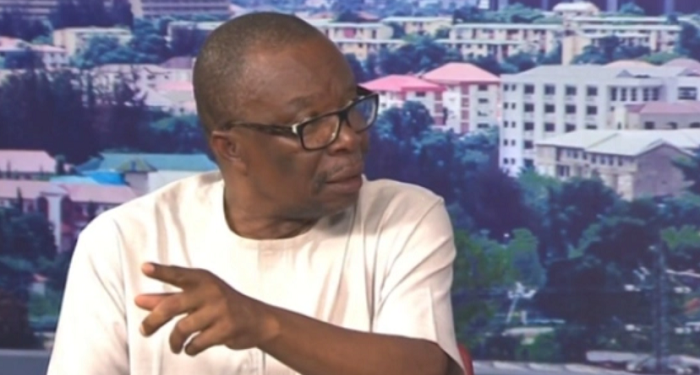As a qualitative economist, I look at trends and patterns to explain and analyze the economy.
The Nigerian economy is shrinking at a pace we have not seen since the civil war. Rated as number 4 in Africa, down from number 1, if it continues at this pace and there is nothing to show that it will slow down, we might be dropping out of the top 10 by the end of this administration’s first term in office.
But like I said, I have begun to notice some positive trends emanating from this carnage. Human trends flow like water. It never stops; it just finds other avenues when it hits a blockage.
The harsh and rudderless economy is leading to the emergence of very positive trends amongst Nigerians and growth in some strategic areas. If well harnessed, we will begin to see a homegrown economic revival as a result of the war boat turnaround in tastes, needs, and how we engage them.
Positive trends
For starters, the local fashion industry has grown phenomenally, ramping past the $10 billion mark according to reports, and overtaking the $8 billion mark reported for the music industry.
The reason for this is very obvious as Nigerians run away from imported fashion items whose pricing has gone off the roof due to the beating the Naira is taking in the currency markets.
Taste is changing very rapidly. Fabrics are coming from cheaper Asian and local sources, and the creativity of our designers at all levels of the market is being challenged. The industry is booming, and nursery industries like media, accessories, storage, logistics, and the rest are also receiving a boost.
Power is the next one. As the government continues with its subsidy withdrawal, the cost of power to homes and industries has also gone up in Malthusian proportions. While industries are looking at alternative power sources like gas, solar, and the rest, homes are also being creative in keeping down their power costs, with inverters and rationing being the most obvious ones.
Rationing is gaining popularity as the demand for ‘pay as you go’ metering allows you to take very strict control of usage. What we are now seeing is the averaging out of costs in these urban homes, and in rural areas, long layoffs without power as their own choice of control.
As these ramp up, behavioral approaches towards power will change, reducing revenues to purveyors but increasing savings that will be channeled to other areas. Power players will now be looking at ways of bringing down the cost of their services or ramping up capacity, which itself should average down the cost—if they can plug the leakages and source cheaper inputs.
The real power has now changed and firmly lies in the hands of the consumer, who now decides when and how they want their power.
Inverse rural-urban migration is another positive trend. I see this slowing down, impacting urban congestion, crime, and pressure on infrastructure, especially health and the rest. As the jobs dry up, rural and suburban areas will start being attractive again, especially with their simple, no-pressure lifestyle with huge spaces.
Middle-class urbanites will start seeing their ancestral lands as a cheap source of capital to jump-start SME ventures in areas like small-scale farming and small industry, among others.
The relatively cheaper cost of production will continue to be a source of attraction, and less taxation, less governmental disruption, incentives, and grants will impact this move as the economy continues to plunder.
The brain drain, or what we all call “Japa,” also comes with more than its positives. As more people leave, job vacancies will be opening up, and as we churn out graduates and other such professionals from our schools and the rest, jobs are also realigning their HR policies to attract and possibly retain them as more leave. So players in finance, technology, the creative industry, services, and logistics will benefit, while players in the old economy like manufacturing and the public sector will continue to suffer.
Another advantage of “Japa” is the technology transfer. As our people get more and more disillusioned by their second-rate status out there, the relative cheapness of factors of production in Nigeria will lead to the establishment or ‘rejapa’ ventures. Already, hospitality, health, fintech, media, and agriculture are beginning to enjoy this.
Transport and automobiles are being buffeted as we are recording a 50% reduction in car importation. Local manufacturing is still very far from filling the gap, and the cost of new cars and even the popular Tokunbo cars has now gone out of reach for 80% of the market.
Today, only the government, its officials, and 5% of the market can actually afford cars. This has impacted the spare parts business as attention is now on maintenance rather than purchase.
Public transport like trains, buses, and waterways are receiving very prompt attention, and at this rate, private interest will start flowing capital into the area. Investment opportunities include infrastructure, asset creation, funding, and finance, among others.
Bicycles will make a big comeback, cutting energy costs, although not very significantly, but will definitely impact health. The mortality rate in the upper-middle class and above is hovering around 62 years, while it is lower for the rural-urban poor who, although not having access to good health services, live better physical and healthy lives.
Education is another area. Nigerian overseas admissions are dropping massively for obvious reasons, and private tertiary admissions are growing locally and overseas institutions are bringing the business to the market. This will grow exponentially if the Naira continues with its kwashiorkor move, and infrastructure in the space, government revenues, and employment will be impacted.
Measuring economic activities
My thoughts are that our economic managers and analysts should start looking at other creative means of measuring growth in the economy as the traditional means are not capturing these sub-mainstream growth positives that are going on. What we have is an elitist-impacting economic situation, so all of their bases are being measured along those lines.
Sixty percent of economic activities are not captured, and these activities provide the buffer that has stopped the whole economy from crashing. Do we capture the millions who are not within the tax net but who employ thousands in catering, subsistence farming, housing, health, and micro-SME ventures and the cash-based businesses that leverage the huge retail population?
All the government needs to do is to hold down the pulse of the economy to allow for proper planning. Hold these indices like forex, inflation, taxes, and policies for a six-month stretch at a time to allow for proper planning at all levels.
If this could be done, we may just be able to birth a new economy no longer tied to the IMF-prescribed indices, but a homegrown one that pushes to its very advantage indigenous non-mainstream economic activities that are not really tied to a global economic structure that is murdering us.






















